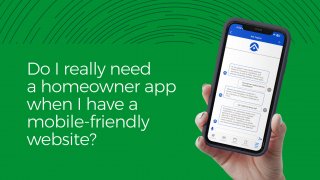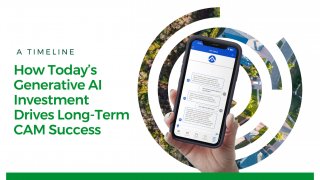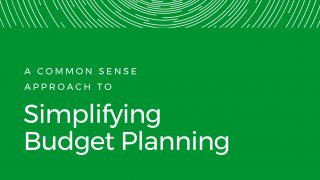Your associations rely on dues as their primary source of revenue. Your company relies on the financial health of its associations to succeed. To reach economies of scale profits, your company needs each of its associations to ensure its residents are paying their dues.
With already thin profit margins, your company cannot afford to lose clients due to delinquent accounts. Without homeowner assessments, your associations would fail to fulfill their duties to maintain their communities, cutting into your company’s success. It also leads to a drop in property values and a devaluation of your portfolio.
Out-of-date payment and collections methods can place undue stress on your accounting team, leading to frustration and job dissatisfaction.
Because assessments are the lifeblood of your association management company, your company must have dynamic payment and collections methods and policies in place. Creating a reliable yearly collections policy can save your company considerable trouble and time.
Understanding Payment Methods
The general method for collecting payments begins with a reminder — monthly newsletters, social media, text messages, or other ways.
Traditionally, when the deadline for dues payments arrived, homeowners sent their remittances through the mail, electronically, or using some other method. Some of your associations may have had representatives that went door to door collecting assessments.
Today, more association management companies are embracing automation as a means to collect payments and initiate collections processes. Automated electronic payment and collection platforms have distinct advantages over traditional methods, including:
- Convenience for your staff and homeowners
- Scalability
- Automated collections correspondence
- Real-time tracking and monitoring
- Built-in payment deadline alerts
Use a payment and collections system specifically designed to help association management company CEOs and leaders grow their business and maximize profit.
Choose an Association Accounting Platform With Payment Flexibility
The best accounting system is effective for your team and convenient for homeowners. To simplify the payment process, consider an all-in-one cloud-based software solution that offers your associations’ residents remittance options, including:
- eCheck — An eCheck is an electronic representation of a paper check. Using the software’s online form, the homeowner enters his or her bank account and routing numbers to make payments electronically.
- ACH draft — Use accounting software that incorporates real-time Automated Clearing House (ACH) draft payments. With ACH, recurring payments automatically come out of the homeowner’s bank account on the due date.
- Credit card — The accounting software you choose for your accounting team should also accept credit cards and provide real-time ledger payments.
- Paper check — To simplify paper check processing, look for a software system that offers lockbox services. Lockbox service specialists credit checks to the appropriate homeowner account. A remote capture system generates check images that your accounting team and homeowners can access later.
Your accounting software should also offer a self-service online portal and mobile app to simplify the payment process further. An online portal allows homeowners to remit dues when and where they want. The smoother the payment process is, the more likely residents are to pay on time — leaving you with satisfied boards and happy homeowners.
Look Over Your Collections Methods for Handling Delinquent Accounts
Likely, most of your associations’ governing documents spell out their collections processes. Double-check these policies to be sure they clearly cover late fees and methods for handling fee disputes. An intelligible payment and collections process is vital to keeping your associations running smoothly.
In a perfect world, your associations’ residents would submit dues payments on time. Regrettably, plenty of homeowners either fail to pay on time or deliberately default on their assessments. The following is a standard escalation process for collecting delinquent payments:
- Demand letter — This notice generally includes the amount due, interest fees, and how many days the payments are overdue.
- Payment plan — A payment plan can be put in place if the state requires it or if your management company allows it. Partial payments are better than no payments.
- Suspend privileges — If residents refuse to pay following the demand letter, your company may wish to suspend amenity access or voting rights.
- Association collection agency — Collection agencies can take away the headache associated with retrieving delinquent payments.
- File a lawsuit — Subject to state laws, your company can sue the homeowner, and dues can be garnished from their wages or bank accounts.
- Lien or Foreclosure — The COA/HOAs under your company’s management can place a priority lien on the delinquent homeowner’s property. Again, depending on your state and association’s governing documents, your association may be able to foreclose on the lien.
Modernize and Simplify Your Collections Workflows
Comprehensive accounting software offers a built-in collections module to automate communications and fee calculations. This serves to optimize the escalation and collection processes, saving your accounting team considerable time. Collections module features include:
- Streamlined communication — Allow your team to send collection letters and violation notices automatically. This diminishes payment disputes and improves how your management company communicates with residents.
- Collection agency integration — By integrating your accounting software with collection agencies, your company receives virtual updates and data on overdue accounts.
- Centralized management — Track homeowner collection letters and late fees in one place with integrated call logs. Finding information and managing workflows is easier than ever.
- Attorney access — Your associations’ collections attorneys can access your software platform directly to access real-time account information, data, and updates on delinquencies.
- Automation — Hone your collections processes by automating fee calculation, collection correspondence, and collection, and escalations based on delinquency status.
If your growth-oriented company struggles with manual payments or successful collections processes, consider implementing a multi-faceted accounting software solution. Complete with a built-in collections module and collection agency integration, managing and tracking delinquency communications and fee assessments can be easier than ever.







